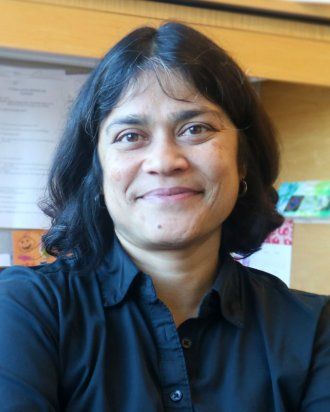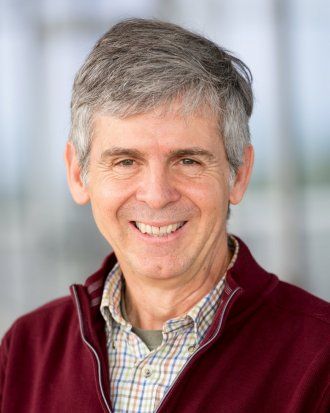Three UCSF Faculty Elected to National Academy of Sciences in 2021
Three faculty members from UC San Francisco have been elected to the National Academy of Sciences (NAS), one of the highest honors accorded to American scientists.
Geeta Narlikar, PhD, Arturo Alvarez-Buylla, PhD, and Holly Ingraham, PhD, were welcomed to the academy on April 26. Their election brings the total number of past and present UCSF members of the esteemed scientific academy to 61.
Narlikar and Ingraham are two of the 59 women elected this year—nearly half of the 120 new members. In a press release, National Academy of Sciences President Marcia McNutt called that number “historic,” saying that it “reflects the critical contributions that [women] are making in many fields of science, as well as a concerted effort by our Academy to recognize those contributions and the essential value of increasing diversity in our ranks.”

Geeta Narlikar, PhD. Photo by Alexa Rocourt
Narlikar, a professor of biochemistry and biophysics, studies how the folding and compartmentalization of our genome is controlled to generate the many cell types that make up our body. Her laboratory has made pioneering discoveries about the mechanisms of macromolecules that regulate genome organization. For example, they found that the smallest unit of genome folding, a nucleosome, acts akin to a dynamic receptor rather than a static packaging unit, and that specialized genome folding proteins can keep large chunks of the genome off limits by curling DNA strands into tiny droplets. These types of findings from the Narlikar laboratory are changing textbook descriptions of genome packaging and suggesting new avenues to tackle diseases caused by defects in genome organization.
Narlikar is also co-director of the Tetrad Graduate Program and the Lewis and Ruth Cozen Chair I. She joined the UCSF faculty in 2003.

Arturo Alvarez-Buylla, PhD.
Alvarez-Buylla is the Heather and Melanie Muss Endowed Chair and Professor of Neurological Surgery. His lab studies the mechanisms behind the production, proliferation, migration, and integration of new neurons in the neonatal and adult brain. The lab identified the adult neural stem cells in rodents and has shown that these progenitors produce different types of neurons, depending on their location, dispelling major claims in the stem cell field. His lab also identified novel forms of migration of young neurons and recently uncovered massive numbers of neurons migrating to specific locations in the postnatal frontal lobe of children, defining a new stage in infant brain development. In addition, Alvarez-Buylla and collaborators pioneered animal studies on the transplantation of cells from the developing medial ganglionic eminence, an approach that is helping to understand mechanisms of neural plasticity and could be key for brain repair.
Alvarez-Buylla joined the UCSF faculty in 2000.

Holly Ingraham, PhD. Photo by Susan Merrell
Ingraham is the Hertzstein Endowed Professor in the Department of Cellular and Molecular Pharmacology. She is committed to understanding how hormones influence the nervous system to control physiological responses in females. Researchers in her lab recently discovered how different sets of estrogen-responsive neurons in the brains of female mice can control either bone density or spontaneous physical activity, factors that are highly relevant to bone loss and metabolic decline commonly experienced by post-menopausal women. In another area of her research, Ingraham’s lab illuminated how specialized cells in the intestinal lining alert the nervous system to signs of trouble in the gut. Follow-up studies are aimed at providing insight into how hormone signaling affects gut-nerve connections to help understand the notable sex bias of irritable bowel syndrome, a common disorder of the large intestine that is far more prevalent in women than men.
Ingraham joined the UCSF faculty in 1991.
The National Academy of Sciences is a private, nonprofit scholarly society established by a congressional charter signed by President Abraham Lincoln in 1863. It recognizes achievement in science by election to membership, and – with the National Academy of Engineering and the National Academy of Medicine – provides science, engineering, and health policy advice to the federal government and other organizations.
This year’s new members bring the total number of active members to 2,461. New members will be formally inducted into the Academy at the 2022 NAS Annual Meeting.
More details about the 2021 class of National Academy Members can be found on the Academy’s website.